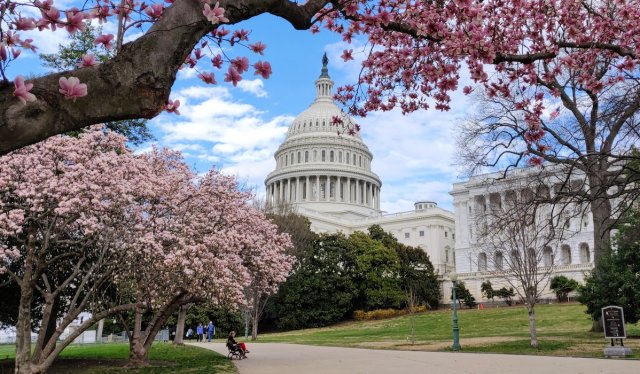
The recently overhauled social studies curriculum standards set out the lofty vision that Oklahoma schools should “develop informed, competent, and responsible citizens who are politically active and aware.” One approach to this goal has been offered by Rep. Terry O’Donnell (R-Catoosa), who has authored a bill that would make it a requirement for graduation in all Oklahoma public schools that students pass a test identical to the one required of people seeking U.S. citizenship by naturalization. If this measure becomes law, Oklahoma will join more than a dozen states that have implemented a similar testing requirement.
However well-intentioned this bill may be, mandating a citizenship test is not an evidence-based approach to preparing students for informed civic participation. Nor does it teach real-world skills such as critical thinking, collaboration and communication, which help foster effective, knowledgeable participation in our polity. There is widespread recognition that Oklahoma schools need to improve civics education to combat a lack of knowledge about and participation in our government. But, by adopting a “just the facts” approach, O’Donnell’s bill relies on the unproven premise that a better understanding of governmental institutions and processes, alone, will yield higher participation. Thankfully, a better approach is available.
Students learn civics by doing civics
Just as students learn chemistry by doing experiments in labs — not just by memorizing the periodic table — students must learn civics by doing civics. The organization I work for, Generation Citizen, launched a program called Action Civics in Oklahoma high schools in 2017. Action Civics is a collaborative, project-based approach to civics education, in which young people learn about democracy by working to address real issues in their own communities. The program facilitates classroom discussions of local or state issues, teaches students how government (at various levels) affects those issues and provides hands-on interaction with community leaders, government officials and school administrators.
Rather than just memorizing branches of government, students develop the civic skills, knowledge and motivation necessary for 21st-century democratic practice. Studies have found that students who receive this type of robust civics education score highest on assessments. They leave class prepared to do more than pass a test — they are ready to think critically about events in the news, to be engaged in democratic processes, and to exercise their right to vote in local, state and national elections. This semester, through Action Civics, more than 2,500 students across Oklahoma are working on a variety of important local issues, such as mental health support for students, transportation, public health messaging and addressing racial violence at athletic events.
The right issue but the wrong solution
A civics education that truly prepares students for active citizenship must rely on proven practices, which include analysis of current events, deliberative discussion and the opportunity to participate, hands on, in local democratic processes. Our Oklahoma students deserve history classes that strengthen the critical thinking skills they need to be the leaders of tomorrow. Unfortunately, short-sighted legislation like the citizenship-test bill would force educators to “teach to the test,” thereby cheapening the quality of education our kids receive and making them less prepared to compete with students from other states.
Civics facts are an important piece of education, but to go beyond the division that has taken hold of our citizens we need civic skills to effectively communicate and reach a consensus that unites us. Oklahoma’s lawmakers should learn from places such as Illinois, Massachusetts and Florida, which have passed legislation that provides the instructional time, teacher development and holistic emphasis on civic knowledge and public investment needed to prepare students for informed, lifelong democratic participation.
Oklahomans take a lot of pride in our state and the relationship we have to the rest of the country. We value the variety of voices that coalesce here and feed the pioneer spirit of the great plains. To maintain our state’s unique character, we must uphold our democratic principles and ensure that the next generations are prepared to be active and engaged participants in our democracy.
It is great that legislators recognize the need to provide students with these tools and are taking action accordingly. Mandating a citizenship test addresses the right issue with the wrong solution. Students need, and deserve, more than civic knowledge without applied learning opportunities. They need knowledge paired with tools for action, and we need legislation that reflects this.





















